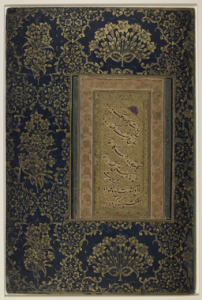 What does it mean to study prayer as practice? This question implies considering prayer as a certain type of object, or at least, that the object prayer can be seen to have a minimally analogous relation to the object practice. However, it can also be understood less a possible ontology of prayer—prayer ≈ practice (rather than say, cognition, or contemplation, or ideation) —than the question of how we should study this “thing” we’re calling prayer. Given the deeply comparative nature of our project, this methodological question is paramount. And the first problem a comparative methodology must grapple with is precisely the difficultly of thinking about what prayer is, across the many varied and disparate instances being studied by the scholars in the project.
What does it mean to study prayer as practice? This question implies considering prayer as a certain type of object, or at least, that the object prayer can be seen to have a minimally analogous relation to the object practice. However, it can also be understood less a possible ontology of prayer—prayer ≈ practice (rather than say, cognition, or contemplation, or ideation) —than the question of how we should study this “thing” we’re calling prayer. Given the deeply comparative nature of our project, this methodological question is paramount. And the first problem a comparative methodology must grapple with is precisely the difficultly of thinking about what prayer is, across the many varied and disparate instances being studied by the scholars in the project.
Is it possible to assume that we all know what we’re talking about when we talk about prayer? I argue that unless we all study prayer as practice, the answer to this is no. But what do I mean by “studying prayer as practice,” if the as doesn’t imply anything fundamental about the nature of prayer as such? Simply put, I want to make a plea for a Foucauldian approach to our object of study, which is not to say a theory of it, or any substantive claim about it, but rather a mode of problematizing it. Such an approach rejects the existence of a transhistorical object “prayer,” as some kind of preexisting natural object of which the particular instance under scrutiny would be one projection. Prayer understood in this way is a pure abstraction, a metaphysical object. Objects such as “the State through the ages,” or “religion” do not exist as such—these are rather objectifications created through discursive practices. Moreover, despite certain social scientific pretensions to the contrary, there is nothing “pure” or “natural” about such objects. What is taken for a transhistorical object—such as religion, the state, or prayer—generally refers to a historically specific form passing itself off as a universal, as Daniel Boyarin and Tomoko Masuzawa have shown us with regard to the concept “religion.”

